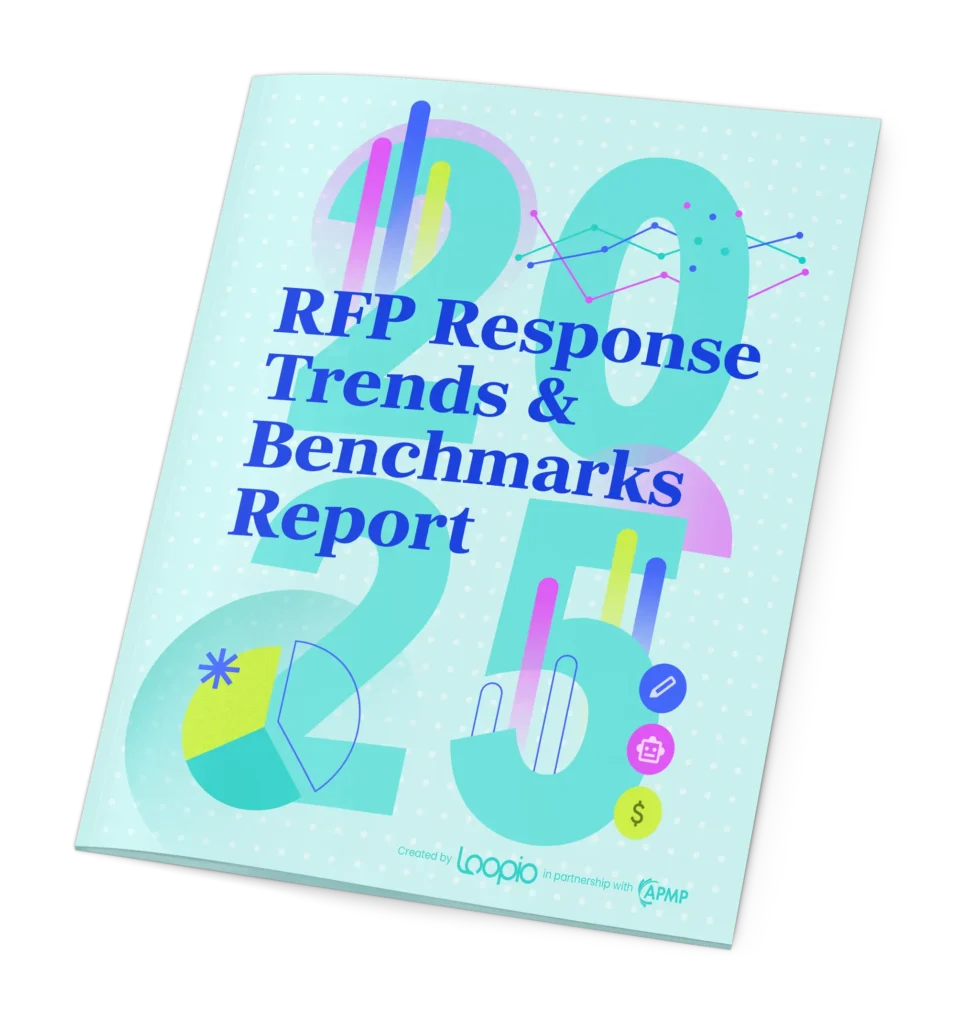New Report
2025 RFP Trends & Benchmarks
Our sixth annual report on the latest trends and benchmarks in response management, with insights from 1,500+ global participants.
What is the RFP Trends & Benchmarks Report?
The RFP Trends & Benchmarks Report shares industry trends and performance benchmarks for teams that respond to RFPs, RFIs, DDQs, and more.
Developed in collaboration with the Association of Proposal Management Professionals (APMP).

Chapter 1
RFP Volume
Average annual RFP submissions decreased, yet more than half of teams are responding to more RFPs.
Learn why in the reportChapter 2
Revenue & Win Rates
RFPs influence more than a third of company revenue for 5+ years running.
Learn how in the reportChapter 3
Writing
The average time spent writing an RFP dropped, with small and medium-sized businesses moving the fastest.
Learn why in the reportChapter 4
Team Challenges
Teams are feeling more optimistic about their roles than last year.
Learn why in the reportChapter 5
Software & AI
AI and RFP software saw widespread adoption this year.
Learn why in the reportChapter 6
Resourcing
Most teams are planning to increase their submissions in the next year.
Learn how in the reportChapter 7
Top Performers
Top-performing teams do ten key things differently than their peers to win more than half of the responses they submit.
Learn more in the reportCareers Report
Get Your Copy Now
Download our brand new RFP Careers and Salaries Report for full insights on average income, career paths, and growth opportunities for response professionals.
Download Now
Keep scrolling »

Industry Insights
Keep scrolling to view all cards»
Who has the hardest time with SMEs?
The technology industry struggles the most with SMEs, with 57% reporting this as a top challenge.
Advertising/publishing struggled the least, with 36% identifying SMEs as a challenge.
Who’s the most stressed?
30% of respondents in management consulting reported that their stress levels are not manageable.
Those in advertising/publishing are the least stressed, with 76% saying their stress levels are fine.
Who struggles the most finding up-to-date, accurate answers?
Finding up-to-date, accurate information is most challenging for those in the technology industry, with 51% listing this as a top concern.
It’s less of an issue for the insurance and healthcare industries, with 31% of respondents in both flagging it.
Who used AI the most in the past year?
AI adoption is up across the board, but advertising/publishing reports the most usage at 75%.
Those in the public sector were the least likely to have worked with AI, with 35% saying they haven’t used it this year.
Who completes RFPs the fastest?
The insurance industry spends, on average, the least amount of time per RFP, clocking in at 20 hours.
Advertising/publishing takes the lead for the longest time spent per RFP, at 28 hours.